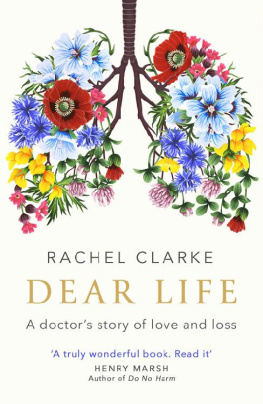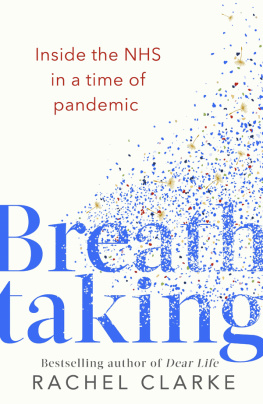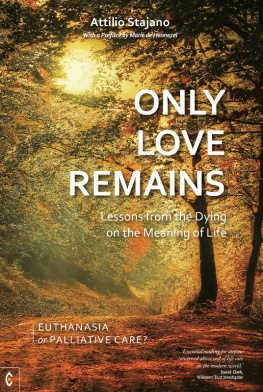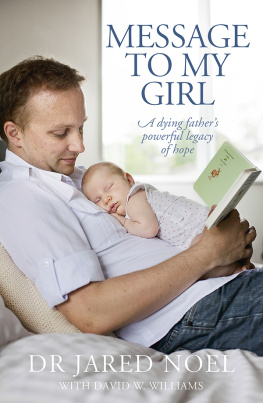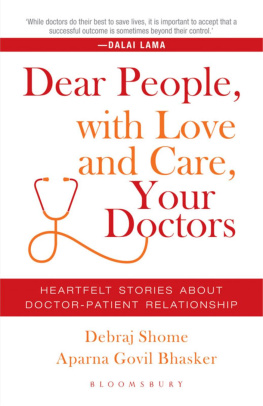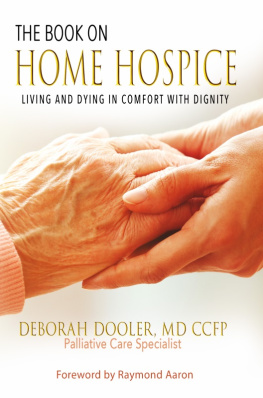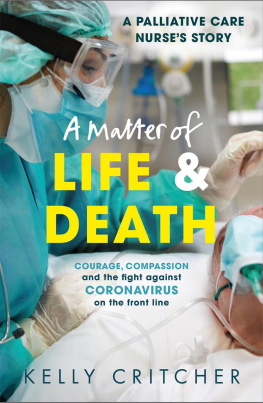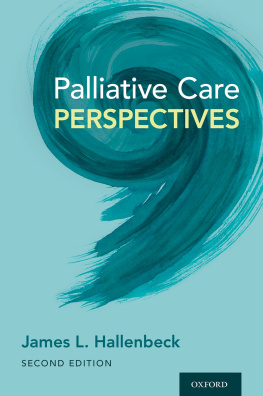Your Life in My Hands: A Junior Doctors Story

Published by Little, Brown ISBN: 978-1-4087-1251-1
Copyright Rachel Clarke 2020
The moral right of the author has been asserted.
All rights reserved. No part of this publication may be reproduced, stored in a retrieval system, or transmitted, in any form or by any means, without the prior permission in writing of the publisher.
The publisher is not responsible for websites (or their content) that are not owned by the publisher.
Little, Brown
Little, Brown Book Group
Carmelite House
50 Victoria Embankment
London EC4Y 0DZ
www.littlebrown.co.uk
www.hachette.co.uk
To Dave, Finn and Abbey, with love
Contents
The stories told here are grounded in my clinical experience, but elements have been changed in order to protect the confidentiality of staff and patients. In addition, details of the situations and the people I have met and cared for have, at times, been merged or altered in order to further protect privacy and confidentiality. I am extremely grateful to Dr Helgi Johannsson; Andy Taylor; Alice, Sharon and Jonathan Byron; and Diane and Ed Finch for allowing me to tell their stories using their real names.
Tell me, what is it you plan to do
With your one wild and precious life?
Mary Oliver, The Summer Day
from House of Light
There isnt enough of anything
as long as we live. But at intervals
a sweetness appears and, given a chance,
prevails.
Raymond Carver, The Author of Her
Misfortune, Ultramarine: Poems
Two men enter an empty studio. They sit down and talk at length over a bottle of white wine, finally departing before drugs lay claim to the eloquence of one of them. Wreathed in smoke, a cigarette permanently clenched in one arthritic hand, the acclaimed British screenwriter and dramatist Dennis Potter has been told the month before that he is dying. The hip flask he sets down on the table beside the wine contains not whisky but morphine. As his interview with the arts broadcaster Melvyn Bragg unfolds, Potter will need televised swigs from the flask to blank out the pain of his inoperable pancreatic cancer.
This is 1994. Back then, in Britain, no one spoke in public about terminal cancer, let alone broadcast its assault on their body on prime-time television. But Potter has always loved to shock his audiences into thought, using drama to confront the truths that most disturb us. This evening, he has chosen to dramatise his own, real-time, corporeal decline.
At age twenty-two, a student who happened to be home from her studies, I was tempted to skirt the televised death talk, but my father told me if I did, I would regret it. And so we sat side by side, in front of the television, as I tried to disguise my discomfort at Potters dependence on his opiates this unadorned proximity to dying. Since Dad, a doctor, did not approve of squeamishness, I kept my unease under wraps.
We were watching, it turned out, Potters last public words. Two months later, he was dead. Yet he filled the studio, and the minds of those who watched, with the sheer theatricality not of dying but of living. Deaths imminence, its claim on his future, had given Potter licence to live like a child in the present. Every second sang.
The only thing you know for sure is the present tense, and that nowness becomes so vivid that, almost in a perverse sort of way, Im almost serene, he said, the paradox prompting a lopsided grin. You know, I can celebrate life Last week looking at [the blossom] through the window when Im writing, I see it is the whitest, frothiest, blossomest blossom that there ever could be, and I can see it. Things are both more trivial than they ever were, and more important than they ever were, and the difference between the trivial and the important doesnt seem to matter. But the nowness of everything is absolutely wondrous.
For a moment and I knew it was the same for Dad I felt like I had been handed the key to everlasting happiness. Experience the world with the heightened intensity of a child. Inhabit now, not tomorrow, or a sad trail of yesterdays. Seize it. Live the moment like it is your last. Needless to say, the humdrum anxieties of everyday existence soon blotted any nowness from my mind. As Potter himself put it so beautifully: Were the one animal that knows that were going to die, and yet we carry on paying our mortgages, doing our jobs, moving about, behaving as though theres eternity.
In 2017, twenty-three years after Dennis Potter died, his words were resurrected in my mind. Dad, my dearest Dad, was now himself a dying man. In thrall to a cancer not of the pancreas but the bowel, he had spent half a year on the chemotherapy carousel. Infusions, blood tests, nausea, fatigue, infusions, damaged nerves, infusions, bleeding skin. Hope, more than anything, kept him coming back for more. Even when the scans showed terminal spread, still he yearned, burned, for more life. He took them, these monthly batterings of the cytotoxic drugs, because they gave him a space in which to believe. They allowed him to imagine a future.
We all, including Dad, feared his days were running out. Unable to stop time, we groped for moments of timelessness. If we could help him, I reasoned, inhabit the blossom, then perhaps he could elude the doctors curse too intimate a knowledge of how his days would likely end, as cancer picked off organs one by one.
I thought back to the tales he had always loved to share of life as a young medic in swinging sixties London, all vibrancy, colour and chaos. Partying hard until the early hours, then driving his scarlet MG sports car through the deserted East End because, in those days, no one cared about drink driving. Skedaddling at dawn from his hospital to the pub around the corner to share early-morning pints with the meat men from Smithfield Market, in boozy, bloodied celebration of surviving three whole days and nights on-call. And, every summer, queuing for cheap tickets to that music festival of world renown the BBC Proms, where he would stand high in the canopy of the Royal Albert Hall as Tchaikovsky and Mahler transported him yet higher.
Music, I was certain, was for Dad a form of blossom. In Trenchtown Rock, Bob Marley sang of its power: One good thing about music, when it hits you, you feel no pain. And so, that spring, I secretly booked us seats inside the Albert Hall for an early Prom in the summer of 2017. Berlins Staatskapelle orchestra would be playing one of Dads favourite pieces, Elgars Second Symphony, conducted by the great Daniel Barenboim. Whether Dad would be alive then, or fit for trips to London, I could not say. I suppose the tickets were a talisman, tucked deep inside a bedside drawer, my own small leap of faith into the future.
For Britons, 2017 often felt like the year of hate. Acts of terror came like rain. First, in March, a British-born terrorist, Khalid Masood, ploughed his car through pedestrians on Londons Westminster Bridge, killing four of them, before stabbing to death a police officer guarding the entrance to Parliament. Two months later, another terrorist, Salman Abedi, exploded a bomb in the foyer of the Manchester Arena, killing twenty-two concert-goers, including children. In June, another eight people were murdered when terrorists drove a van into pedestrians on London Bridge, then embarked on a stabbing rampage in nearby Borough Market.
The country reeled from onslaught to onslaught. Already bruised from the preceding years referendum Britains decision to leave the European Union had unleashed much division and anger now we were battered by terror. It was hard to find reasons for hope. Amid the disbelief and rage, the murderous death toll ever rising, we scratched around for comfort where we could. For Dad, like so many, this lay in the innumerable, instinctive acts of courage that unfurled, like little miracles, from the hate.

